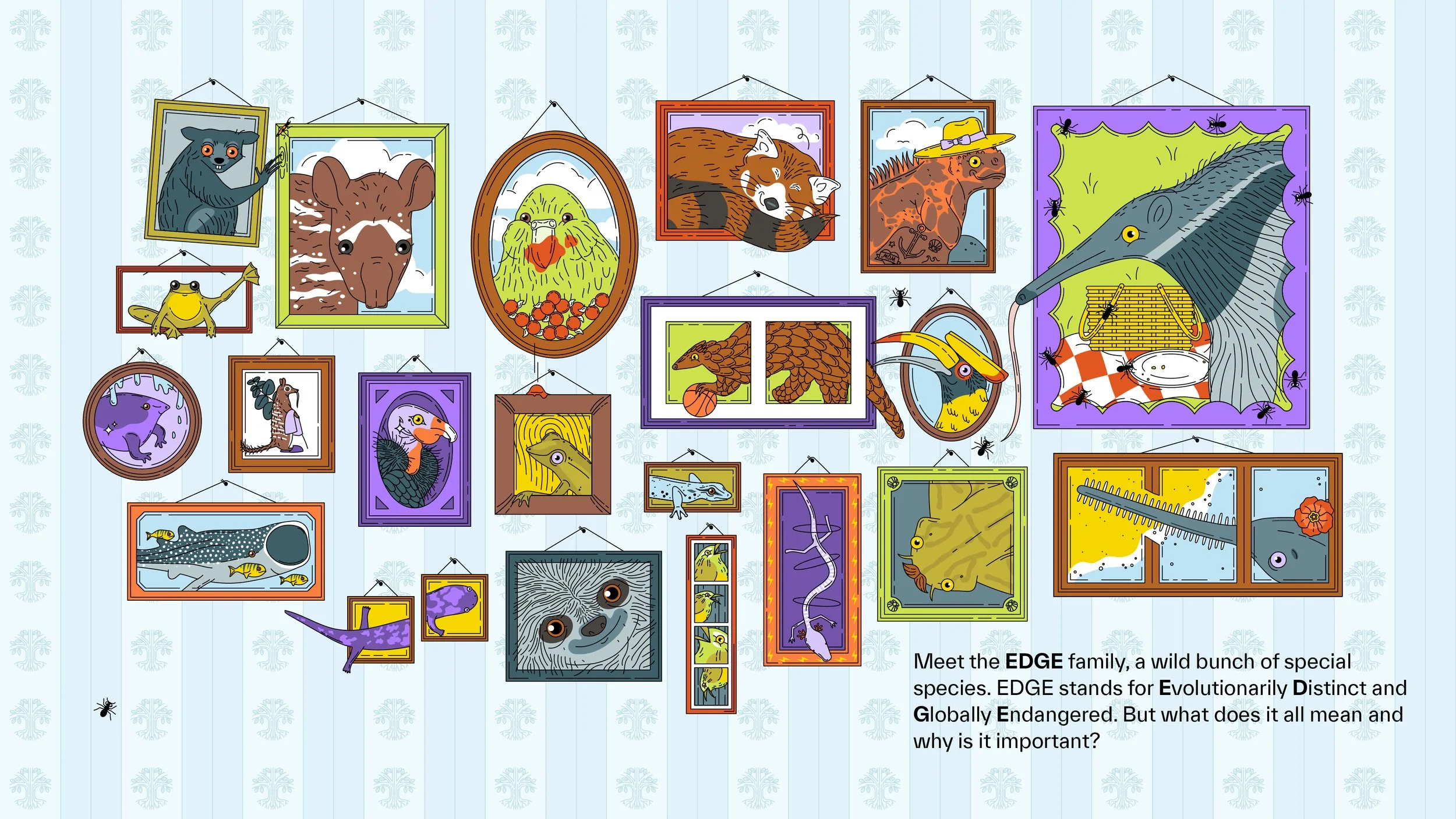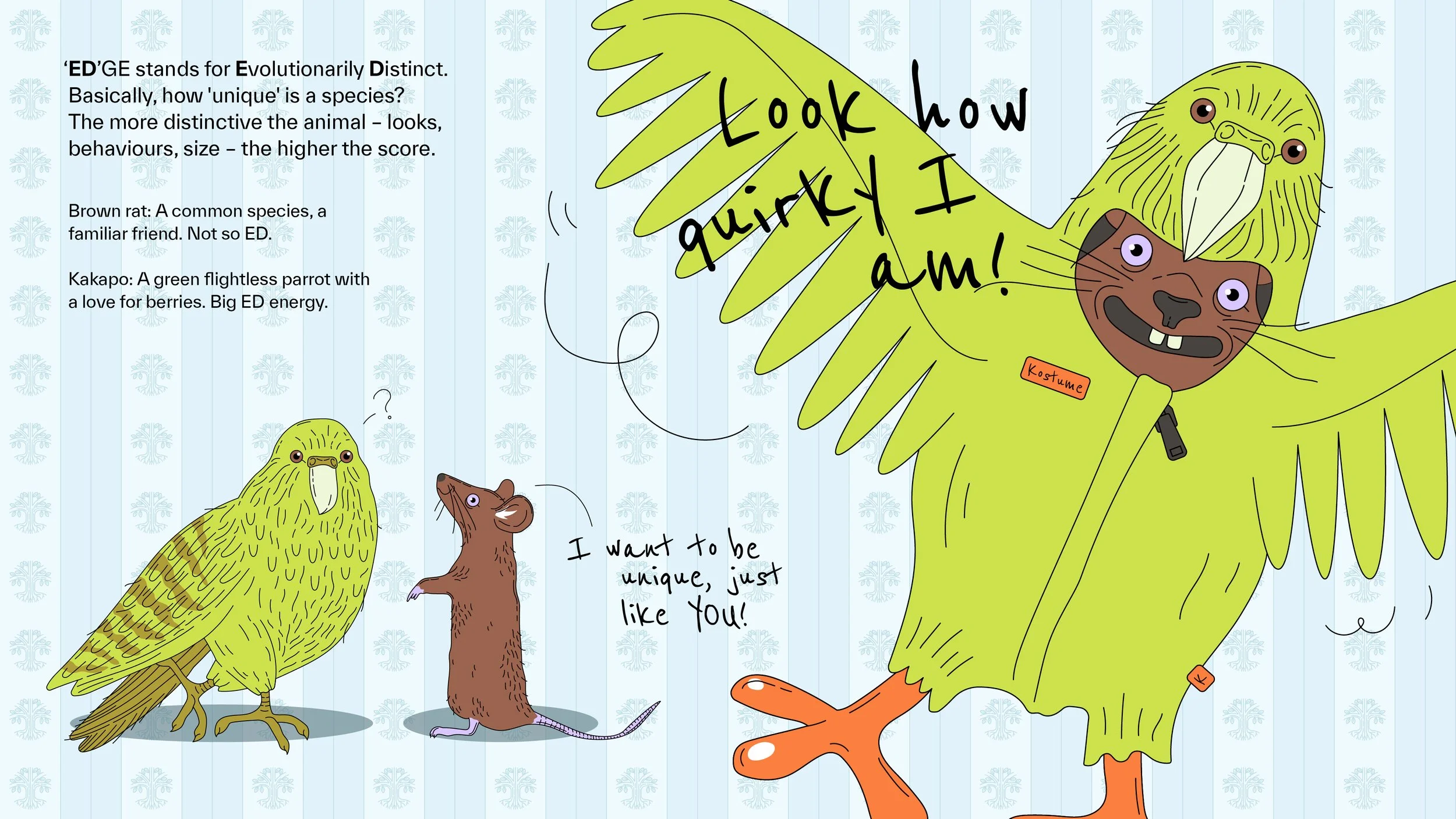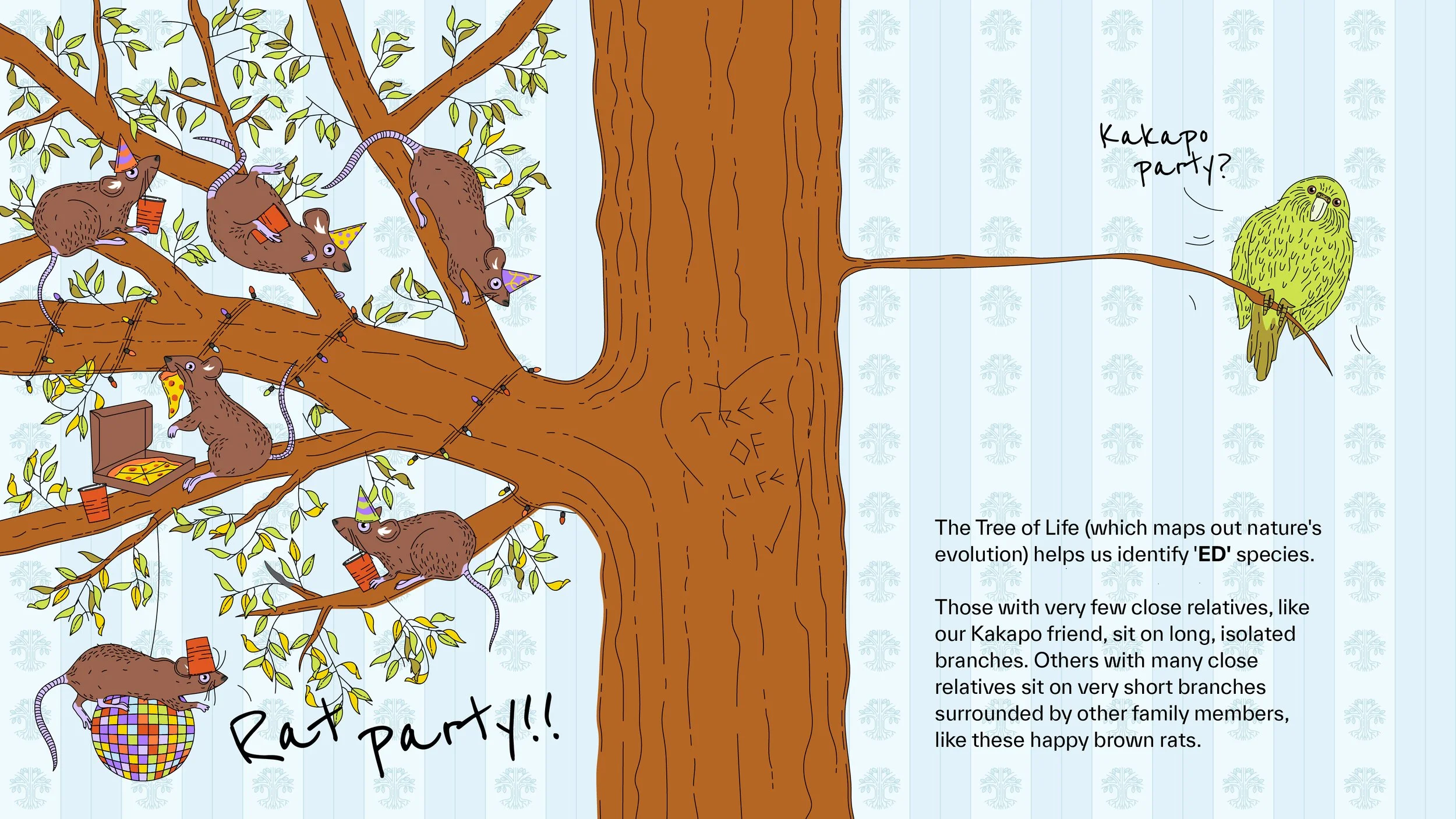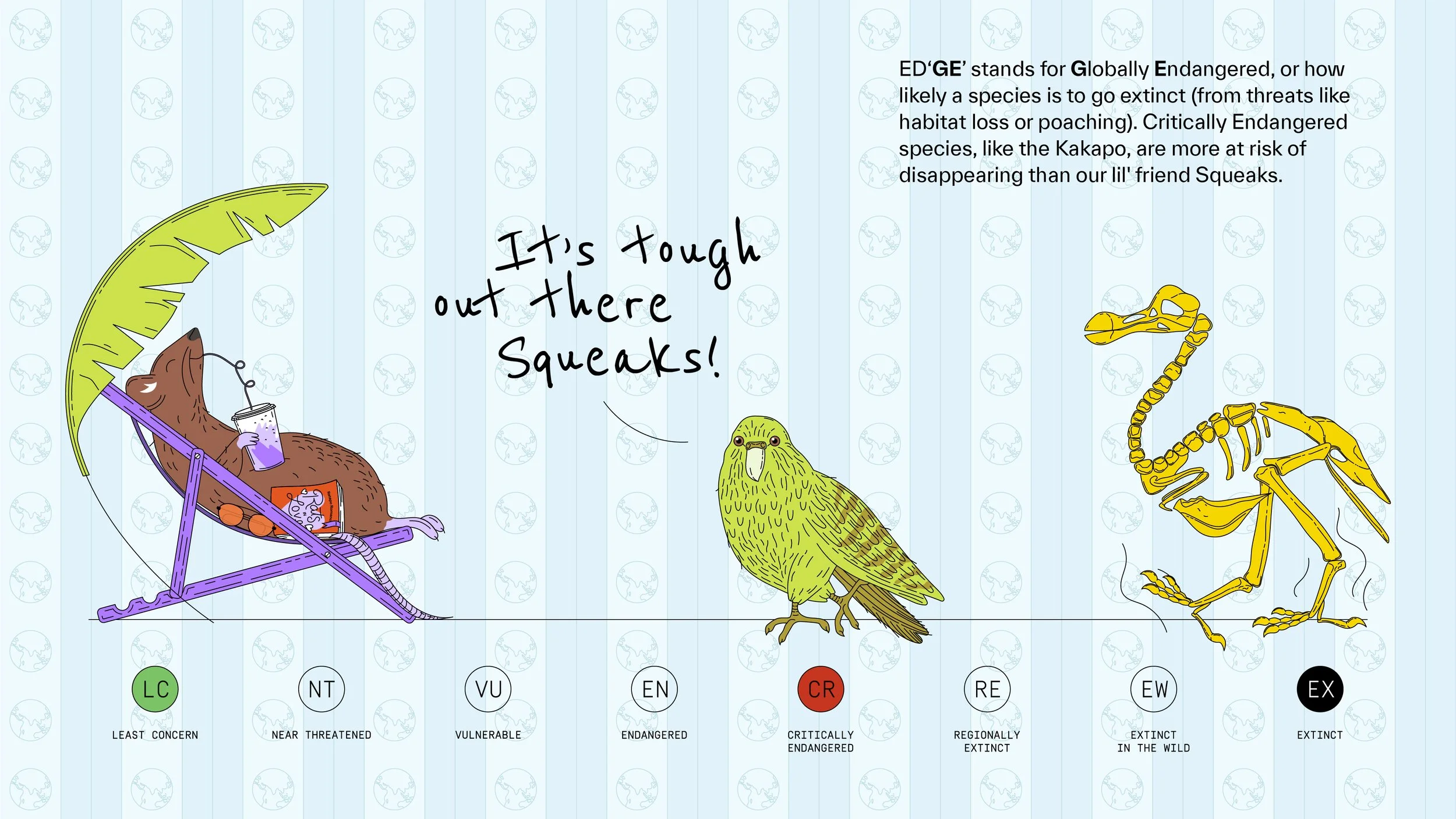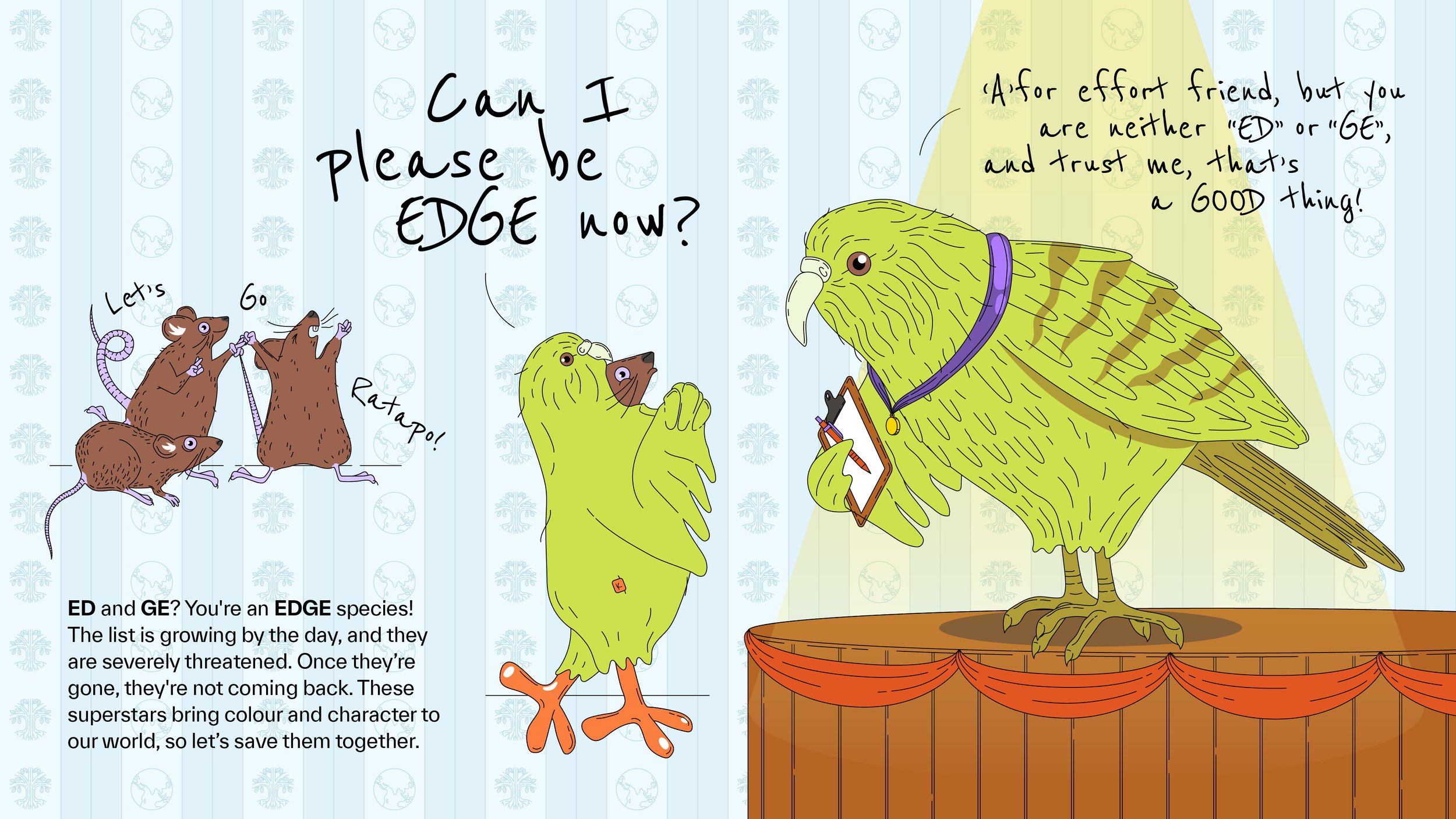Natural history
We back Nature’s underdogs — the unseen, the unheard, the lesser-spotted and long-overlooked.
For them to thrive, they need attention from those who know them best. That’s why we fund in-country conservationists and scientists to protect EDGE species worldwide, and help storytellers to create content that reconnects us with these natural superstars.
Why EDGE*?
Amazingly diverse & threatened species
Some of the oldest, most unique, and endangered species on the planet. Welcome to the world of Evolutionarily Distinct Globally Endangered (EDGE) species. They're icons and there's nothing like them.
4,000 overlooked species
EDGE species are the ultimate survivors but only one in ten of them is getting the conservation attention it needs.
Evolutionary history
Helping these species starts in EDGE Zones. By helping conservationists in all 25 of these special areas and beyond, we're doing our bit to protect nature’s rich history.
What does it mean for a species to become EDGE?
EDGE, explained
Meet some EDGE species
On the Edge Fund
We fund in country conservationists and local storytellers — and uniquely, we pair them together to amplify each other’s impact.
On the Edge Fund Grantee spotlights
Conservation
Storytelling
Want to get into the nitty gritty of our impact?
Read our 2024 Impact report below, or download it here.




